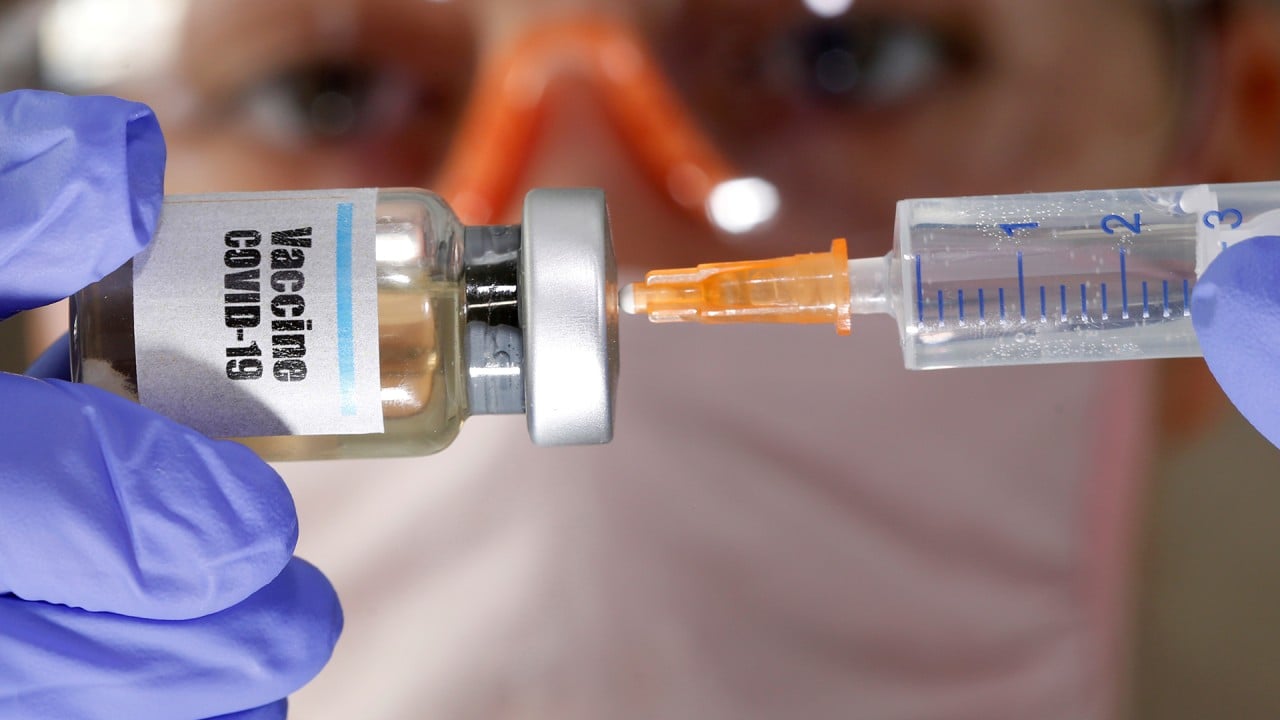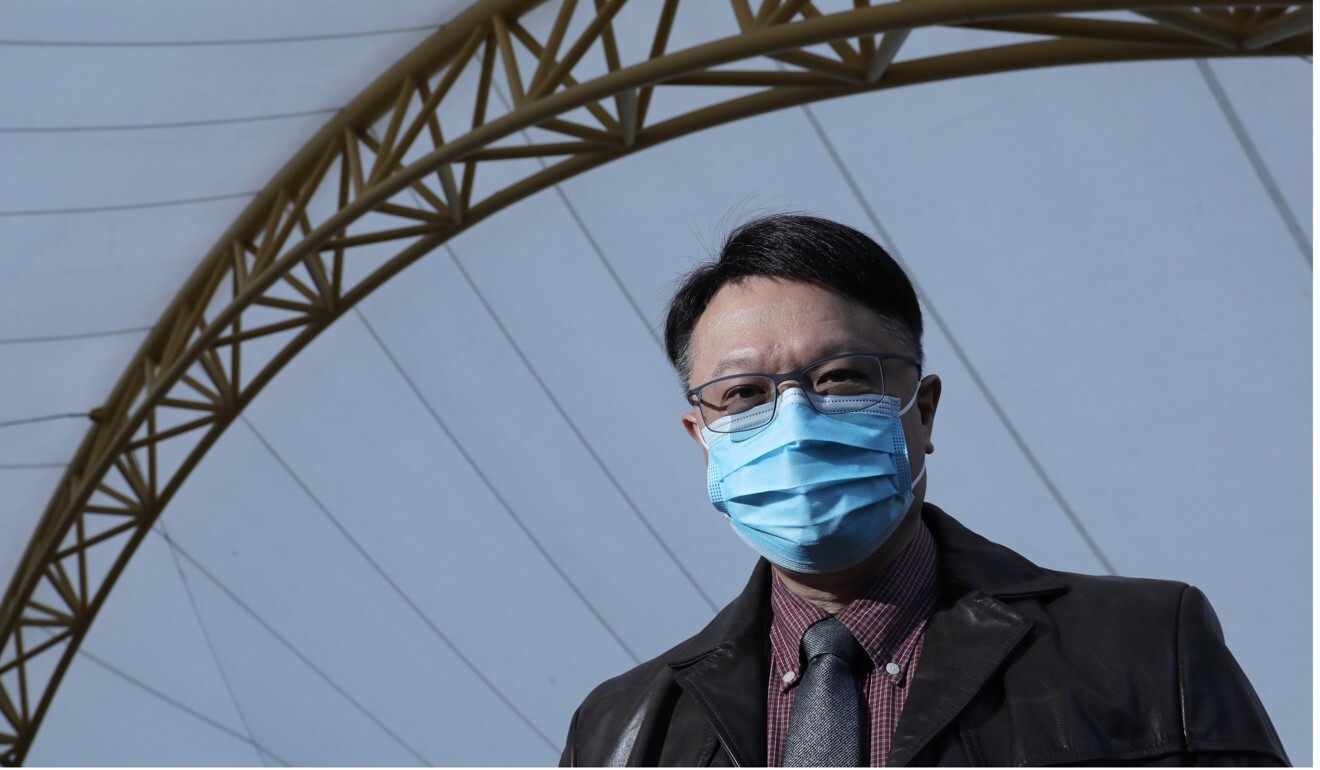
Hong Kong third wave: health experts question ‘late’ move to plug Covid-19 loopholes for seafarers and aircrew as city records another 128 infections
- Health experts query why the changes affecting seafarers, aircrew will only come into effect from Wednesday rather than immediately
- Latest daily tally of 128 cases is the second highest Hong Kong has recorded since the virus hit the city and the fifth straight day of triple-digit rises
But health experts questioned why the changes would only come into effect from Wednesday rather than immediately, saying such workers were likely to be the reason for the recent surge in infections and that the measures were too little, too late.
They also said new Covid-19 clusters at homes for the elderly, wet markets and a local slaughterhouse were a cause for concern.

06:17
‘Robust immune responses’ found in Covid-19 vaccine clinical trials point to 2021 release
Of the 128 new infections, 103 were locally transmitted, including 35 for which the authorities had yet to find a source. Twenty-five cases were imported, among them eight seamen from Britain, the Philippines, Indonesia and elsewhere.
Hong Kong should brace for tougher Covid-19 measures, warns deputy leader
The health authorities also said about 100 people tested preliminary positive for Covid-19, including three workers linked to the Sheung Shui slaughterhouse, one of the city’s three licensed abattoirs.
“The outbreak continues to be serious,” Undersecretary for Food and Health Dr Chui Tak-yi warned at a daily press briefing on the coronavirus situation.
“Some people like to have gatherings with relatives and friends. But under such critical moments, for the sake of your health and that of families and friends, stop such events now.”
Hours before Chui spoke, the government announced that, from Wednesday, ships without any cargo trade via Hong Kong would no longer be allowed to change their crew in the city, plugging what health experts had consistently described as a loophole and a possible source of the spike in Covid-19 cases.
Authorities had allowed unrestricted crew changes in local waters, including for ships without cargo operations in Hong Kong. Official figures showed about 10,000 seafarers had been exempted from Hong Kong’s 14-day quarantine, although arriving and departing crew were restricted to their ships and accommodation, and the airport.
Under the new measures, crew members on ships with cargo would have to stay on board while the vessels remained in Hong Kong waters. Outgoing crew members who had completed their service would have to remain on the ship until they were transported to the airport to avoid contact with the community.
Global virus cases top 16 million as UK defends Spain quarantine move
Incoming seafarers arriving at the airport would have to provide a certificate showing a negative Covid-19 test result. Without one, they would be denied entry to the city. Shipping companies must also arrange point-to-point transport for crew to travel to and from vessels.
Also from Wednesday, aircrew members must obtain negative Covid-19 results from accredited laboratories before they board flights to Hong Kong. The specimen must be collected 48 hours before boarding flights.

Failure to do so would mean the need to take a Covid-19 test upon arrival at Hong Kong International Airport and having to wait for the results there or at other designated locations.
Airlines must also arrange point-to-point transport for their crews between the airport and accommodation.
Other air travellers currently exempted, such as certain businesspeople, would also need to take Covid-19 tests before flying into Hong Kong or get tested upon arrival.
Asked about the delay in introducing the changes, Chui said he had always respected the opinions of health experts.
The government needs to take a leading role and any new measures should kick in immediately. Ordinary residents can only do so much
“The government has been reviewing the situation and the need to tighten the measures in a very responsive and timely manner as [much as] possible. Of course, it takes some time when we need to discuss with the relevant bureaus, departments and stakeholders, the operators, to implement these new measures,” he said.
But Dr Joseph Tsang Kay-yan, an infectious disease expert, said the new measures came too late.
“And there are still another three days before the measures actually take effect. Hongkongers are now bearing the consequences of this delay,” he said.
“The government needs to take a leading role and any new measures should kick in immediately. Ordinary residents can only do so much.”
While the number of new cases with unknown sources had fallen to about 40 per cent of the daily tally, Tsang said new clusters at care homes, wet markets and the abattoir were a worry.
Chinese University respiratory medicine expert Professor David Hui Shu-cheong said the changes were “better late than never”. He said it was likely the third wave of infections “had something to do” with ship crews. He was also concerned some business travellers were still exempted.
Exempted truck drivers who delivered fruit and vegetables from mainland China were of the least concern as they had to undergo testing at the University of Hong Kong-Shenzhen Hospital regularly, Hui added.
Trump’s ‘Chinese lab’ theory may be weakened by FDA’s bat virus finding
On why the measure would only take effect on Wednesday, a government spokesman said in a statement late on Sunday that “having considered that some flights and vessels have made arrangements to come to Hong Kong, a wholesale cessation of the exemption arrangement will not be in the public interest”.
Chui, meanwhile, said the three abattoir workers’ duties did not include slaughtering pigs. Two sent the animals to be slaughtered, while the third was a buyer.
Chui said there was no cause for alarm as long as meat was cooked. The slaughterhouse was thoroughly disinfected.
At Cornwall Elderly’s home in Tuen Mun, two more employees and six senior citizens were confirmed as infected, and 13 residents living there had tested preliminary positive. A total of three workers and seven residents there had now been confirmed infected.
At King Fuk Home for the Aged in Sham Shui Po, a resident was infected, meaning 25 others who lived and worked on the same floor had to be quarantined.
Two taxi drivers were also confirmed as infected.
Separately, police said a 36-year-old man had become the first in the city to be hit with a HK$2,000 (US$256) fine for not wearing a mask at Kwai Chung Plaza.
The force said the man refused to cooperate with officers despite repeated warnings.
Outside a nearby mall, six other men were fined for hanging out together, violating the government’s measure that confined public gatherings to four people.
Additional reporting by Elizabeth Cheung and Natalie Wong



